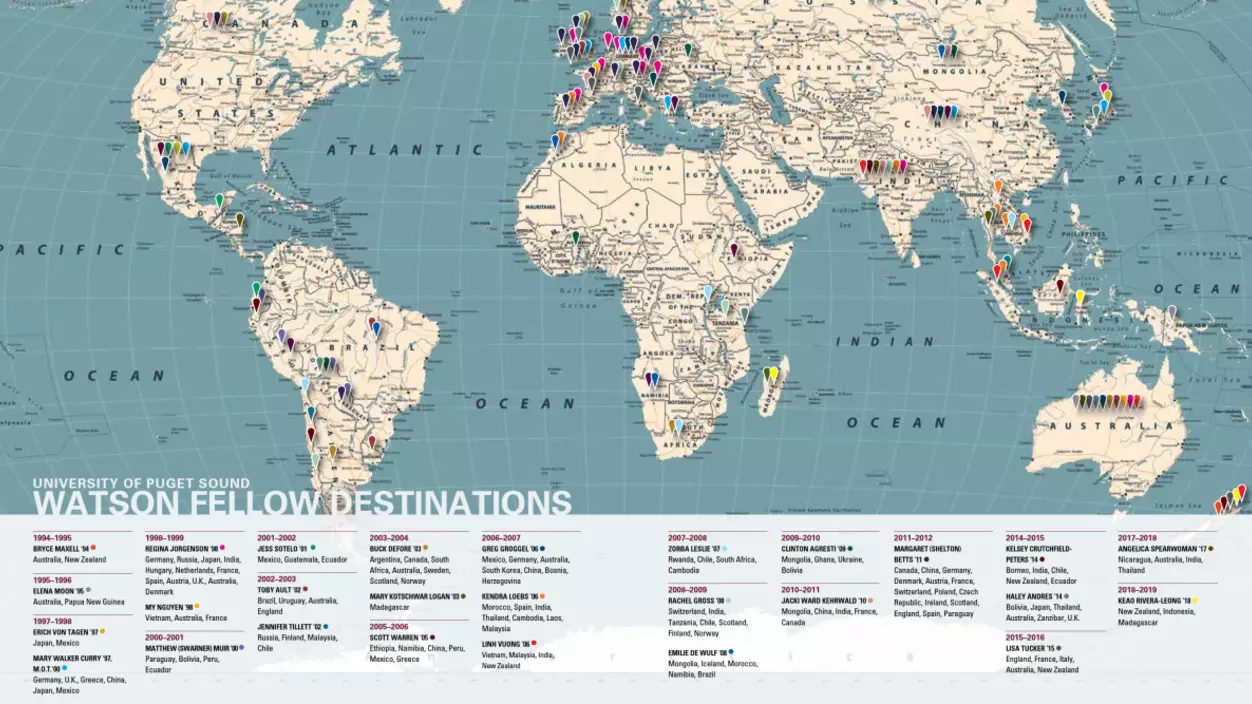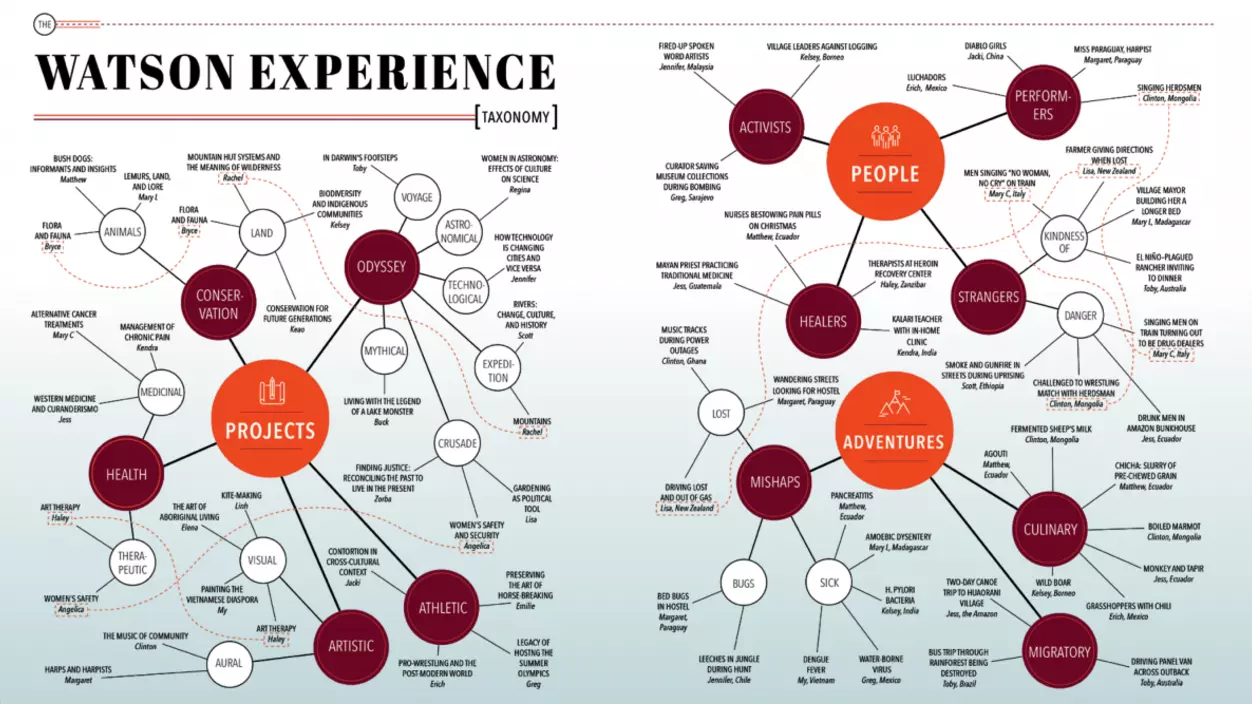An introduction to the autumn 2018 Arches special edition from the editor
Editor’s note: This is an excerpt from a special edition of Arches magazine that commemorates the 50th anniversary of the Watson Fellowship, in which we explore the travels, stories, and reflections of Puget Sound’s fellows. For the best viewing experience, download the autumn Arches PDF.
Fifty years ago, America was in turmoil.
In the spring of 1968, Martin Luther King Jr. was shot, and riots broke out across the country. Senate hearings to investigate the Johnson administration’s handling of the Vietnam War were ongoing. During the Summer Olympics in Mexico City, two black athletes raised their fists in silent protest of racial inequality. America’s unity at home and reputation abroad were deteriorating. It may not be coincidence, then, that 1968 was the year the children of Thomas J. Watson, the founder of IBM, created the Watson Fellowship.
Arthur Watson, the second son and a graduate of the international relations program at Yale, believed that the future of business and technology depended on cultivating a global perspective. “World peace through world trade” was his motto as he guided his father’s company to become one of the most powerful corporations in America. IBM aside, the Watson Fellowship, as conceived by siblings Helen, Jane, Thomas Jr., and Arthur, is arguably the family’s best legacy. As American society became more polarized, the Watsons quietly built an apparatus that would create infinite generations of “humane, effective leaders.” With personal growth, perspective, and insight at its core, the Watson Fellowship hinges on the inevitable sea change that occurs within human beings when they leave the familiar, embrace the foreign, and come to know themselves within a wider worldview.











